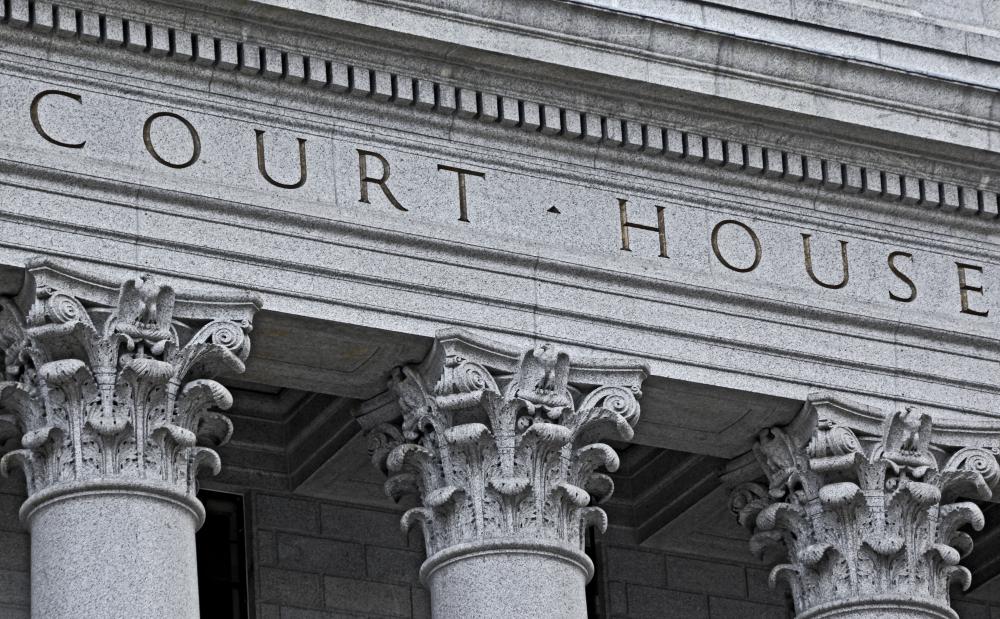At MyLawQuestions, we're committed to delivering accurate, trustworthy information. Our expert-authored content is rigorously fact-checked and sourced from credible authorities. Discover how we uphold the highest standards in providing you with reliable knowledge.
What is a Class 1 Felony?
Most states in the United States classify crimes as either misdemeanors or felonies. Felonies are typically more serious infractions of the law than misdemeanors. Felons, or those who have been convicted of felonious crimes, automatically lose certain rights as United States citizens, regardless of the classification of the felony. Not every state has a class 1 felony designation, however, and the definition and penalties for a conviction vary from state to state.
A class 1 felony designation is typically the most serious felony in the states where this designation is used. For example, conviction for a crime in this class in Arizona can result in a sentence of 25 years to life in prison. In addition, the death penalty is an option if the crime committed was a murder. Punishment for such a crime committed in Virginia can be life in prison, the death penalty, and/or a fine up to $100,000 US Dollars (USD).

Serious felonies are also punished severely in states that do not have a "class 1 felony" designation. These states have different names for the same type of felony and subsequent punishment. For example, North Carolina's class A felony calls for life imprisonment or the death penalty.
Law in the United States is derived from English common law. In times gone by, the punishment for felonies in England included confiscating all of the convicted felon's assets, including any property that the felon may have owned. Other crimes were termed as misdemeanors.

Today in the US, a felony is a crime that is punished by a minimum of one year in jail. Misdemeanors are punished by less than one year, although in some states, a person who is convicted a "gross" or "aggravated" misdemeanor may also be sentenced to more than one year in prison. The difference is partly that the person who is convicted of a felony will lose rights that the person that was convicted of a gross or aggravated misdemeanor will retain.

These lost rights can include the right to vote, the right to become an elected official, and the right to buy firearms. In addition, convicted felons may not be able to become professionals such as lawyers or teachers or join any military forces. Convicted felons may find it difficult to travel abroad because many countries will not grant visas to those who have been convicted of serious crimes. Non-citizens are subject to deportation after serving their time.
AS FEATURED ON:
AS FEATURED ON:














Discussion Comments
What type of felony would it be if you head butted a cop?
Subway11-Arizona has the most severe DUI penalties of any other state. It is really a model of what other states should do. I bet their DUI cases are lower than in other states.
GreenWeaver-Sometimes a charge can be upgraded to a more severe felony level if there were additional aggravating circumstances like the use of a gun.
Felony DUI is a three degree felony in most states and it is not only punishable by up to ten years in prison, but fines in Arizona fines in excess of $100,000 are not uncommon.
A 3rd degree felony is punishable by certain incarceration terms of two to ten years.
These cases involve fraud, arson, embezzlement, child molestation, drug possession, battery and assault.
Along with the prison sentence from two to ten years, those convicted of a third degree felony can also face fines up to $10,000.
Third degree felonies differ within the states but these sentencing guidelines are generally used in most states.
Another third degree felony in Florida involves tampering with a train or railroad tracks. This crime in other states might be a misdemeanor, but in Florida is it is considered a more serious crime.
In Illinois class 1 felonies are punishable by four to fifteen years in prison. A class two felony conviction results in a three to seven year prison term and a class three and four felony are classified by a possible prison term of two to five years and one to three years respectively.
They also have a class X which is considered the most serious of all felonies and possible jail terms are six to thirty years in prison with no possibility of probation. Felony laws range from state to state and maybe classified a little differently.
Post your comments